What Is a WHNP? Your Top 10 Questions Easily Answered
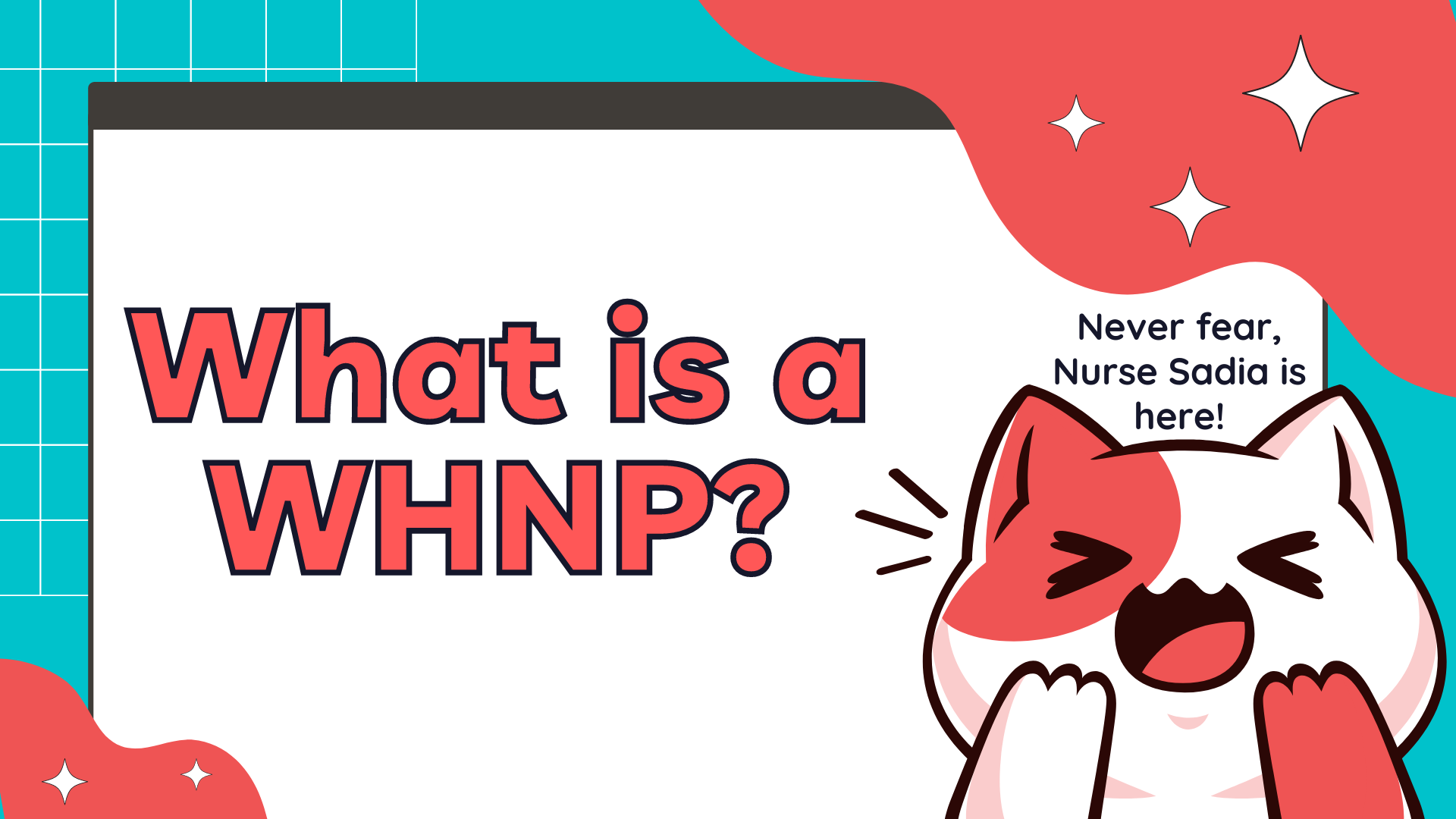
You’re here because you’re wondering what is a WHNP. Simply put, WHNP is an acronym for women’s health nurse practitioner. A women’s health nurse practitioner (or WHNP) is a type of nurse practitioner. In this post, I’ll discuss what is a WHNP and other common questions I get about this profession!
Welcome to my blog! I’m Sadia, a women’s health nurse practitioner, women’s health content writer, and social commentator. I do many things, but mostly, I write and speak my mind. All views my own unless stated otherwise. Grab something to drink and scroll away with me. It’ll be good for both of us, promise.
First, did my definition of WHNP confuse you? It’s ok. When I first started to read about nursing and learned about what is a WHNP, I was also confused. Navigating health care as a patient and navigating health care paths are both complicated. Whether you are curious about entering the nursing profession or wondering who took care of you at your last visit, this post is for you!
In this post, I’ll answer the top 10 questions I get about women’s health nurse practitioners.

What Is a WHNP? The Basics
First, what is a WHNP? WHNPs are a type of nurse practitioner with training and education in women’s health. Nurse practitioners are health care providers, similar to physician assistants. The majority of WHNPs have a graduate-level degree in women’s health nursing. Some WHNPs worked as registered nurses before going back to school. Other nurses might have entered the WHNP profession via an accelerated or direct entry nursing program.
For example, I completed an accelerated nursing program since my first Bachelors was not in nursing. All WHNPs are trained with a nursing lens and are educated in health care for women throughout their lifespan.
Second, what’s the difference between a nurse and nurse practitioner? There are many types of nurses, such as licensed practical nurses (LPNs) and registered nurses (RNs). Nurses provide patient care. The scope of work for nurses is often defined by their state, country, or local board of nursing. Nurse practitioners oversee and manage patient care in collaboration with a physician or doctor. The scope of nurse practitioners also is defined by their state, country, or local board of nursing. Nurse practitioners in many states have the availability to prescribe prescriptions and perform in-office procedures.
Getting into the WHNP Nitty Gritty
Third, if you love women’s health, why did you become a WHNP instead of an OB/GYN? I get this question often. First, I knew I never wanted to do surgery. OB/GYNs are doctors who specialize in obstetric and gynecological care. They also perform surgeries, such as C-sections and hysterectomies. I knew I didn’t want to do surgery since that is a lot of liability, stress, and risk. Plus, I saw the life of OB/GYNs. OB/GYNs always see many patients, run to the hospital for births, and more. It is a very rewarding career, but also really time extensive.
While I love women’s health and birthing, I knew that life was not for me. I love OB/GYNs and am grateful for their work and time and saw that life was not for me.
WHNPs do not deliver babies, do not do surgeries, and do not see patients that are outside of our scope of work. All of this appealed to me because health is complicated. As much as I love seeing patients on the margins and with complex health needs, I also wanted to be realistic of my capacity as a health care provider.
Like what you see? Sign up for my newsletter! Nurse Sadia and her affiliates do not share your email address or personal information with anyone. You may unsubscribe at any time.
Let’s Talk Money and Lifestyle
4. What is the salary for a WHNP? Salary varies by state and place of employment, such as a hospital or private practice. Typically, hospitals pay more than private practices, and those with more experience get more money than new grads. According to Glassdoor, the average salary for a WHNP is $118,000. Now, this average varies depending on experience, location, and place of work. As a new grad WHNP, a lot of new grad WHNP jobs are paying anywhere from $70,000 to $80,000.
5. Where do WHNPs work? WHNPs can work in OB/GYN offices, public health departments, hospitals, telehealth companies, schools, student health centers, prisons, primary care centers, community health centers, and more.
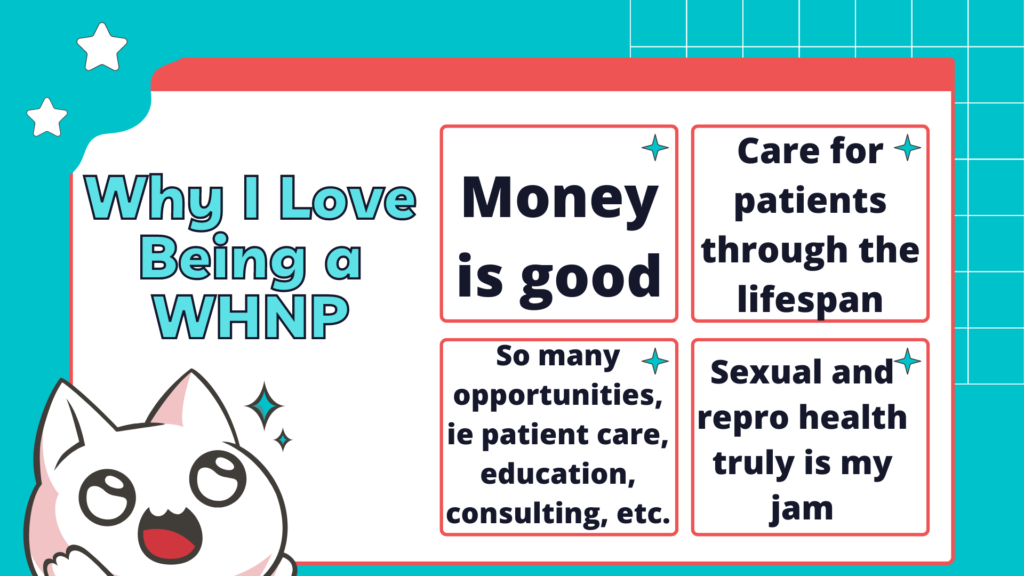
So, What Do You Do?
6. What kind of work can a WHNP do? My favorite question! 😀 WHNPs can see women and trans people for reproductive and sexual health concerns. They can also see adolescent patients. WHNPs can do well-women or annual exams, provide prenatal care, see patients postpartum, and more. In addition, WHNPs can insert IUDs, do PAP smears, perform STI testing, and of course, provide patient education. WHNPs hit health care differently since we do it all (within our scope, of course).
7. Why did you become a WHNP instead of a midwife? I love babies. I love birth. But, I don’t like getting up at 2am to catch a baby. And staying up for 24 hours on a shift to catch babies is not realistic for me! I love midwives. In fact, midwives were my main preceptors for my clinical training. But, the midwife life is spontaneous because of the nature of birth. Birth can happen at 9pm on a Friday night, and labor can last up to a day. As much as I love birth and birth justice, I knew that staying awake and being on call for births at all hours was not realistic for my sleep schedule.
P.S. Are you still reading? If you are able to afford to do so, consider compensating me for my time and labor with a one-time amount via PayPal (https://paypal.me/nursesadia) or Ko-fi (https://ko-fi.com/nursesadia). Thank you!
The Truth
8. Why did you become a WHNP? I never even knew WHNPs existed until I was like 20? I saw a WHNP at Planned Parenthood, and she did my IUD insertion. She was so sweet and kind, and I wondered if I could ever be like her. I did A LOT of research on WHNP programs, nursing schools, career options, and so much more. After so much research and time, I took the plunge to become a WHNP since it vibed with me. I always loved women’s health. I knew I wanted to do something in women’s health. And, I knew direct patient care with a compassionate and caring provider was a luxury many people never experience.
9. Why should I see a WHNP compared to an OB/GYN or midwife? I mean, you can see anyone. It’s your life. I would recommend seeing a WHNP if you’re looking for non-judgmental care. That said, I’ve seen some WHNPs who treated me like trash, so each their own. Do your research. Know what sort of care you want. Advocate for yourself. Never settle for less than your worth. You’ll thank me later.
So, do you enjoy your work?
Ab-so-fucking-lutely. When I started my research prior to nursing school and learning what is a WHNP, I fell in love. As a WHNP, I LOVE all things women’s health related. If I didn’t love women’s health, I would’ve never gone to nursing school. Even as I’m on the job hunt now, I’m glad I can still do consulting and writing work on the side as I strive for my WHNP dream job.
Seriously, WHNP life is the best. I am so glad I chose this path, and I’m excited to share more adventures with you 🙂
Let me know what sort of posts you’d like to see more of in the future!
Remember, new posts every Wednesday.
Yours Truly,
Nurse Sadia
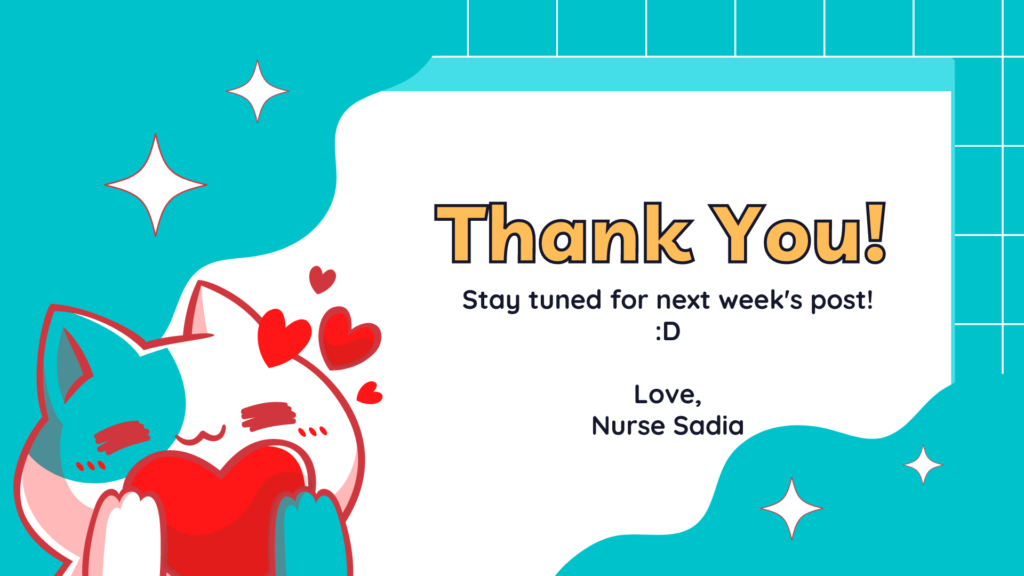
References
https://www.glassdoor.com/Salaries/womens-health-nurse-practitioner-salary-SRCH_KO0,32.htm
DISCLAIMER: Nurse Sadia is a licensed and board-certified women’s health nurse practitioner and registered nurse. All information on this page and on www.digitalhealthcommunicator.com is for educational and informative purposes only. It is not meant to be used for self-diagnosing or self-treatment of any health-related conditions. While the information presented has used evidence-based research and guidelines for accuracy, Nurse Sadia cannot guarantee any inaccuracies as healthcare is rapidly evolving.
This information should not be used to substitute professional medical advice. Nurse Sadia is not responsible or liable for any damages, loss, injury, or any negative outcomes suffered as a result of personal reliance on the information contained on this website. Nurse Sadia also makes no guaranteed positive outcomes. Information is also subject to change as needed without notice. Please consult with your healthcare provider before making any healthcare decisions and ask about guidance for specific health conditions. Please do not disregard the advice of your healthcare provider or delay seeking care for health care conditions.

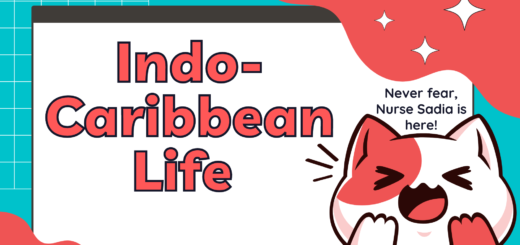
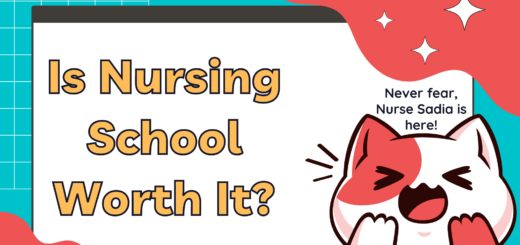


You must be logged in to post a comment.